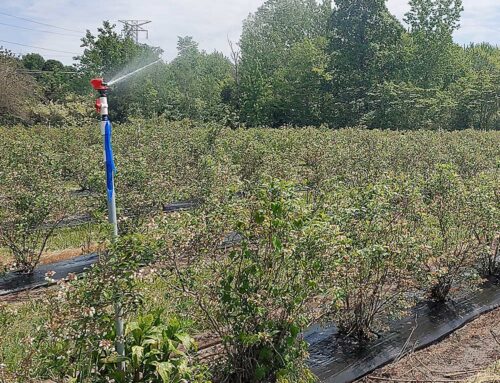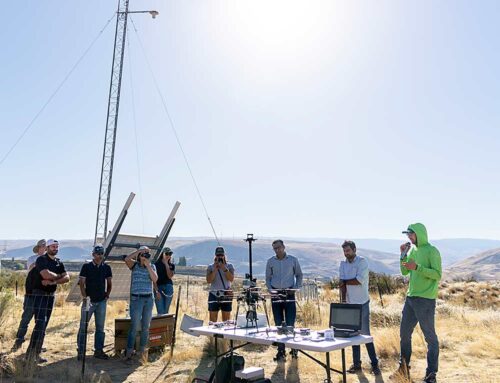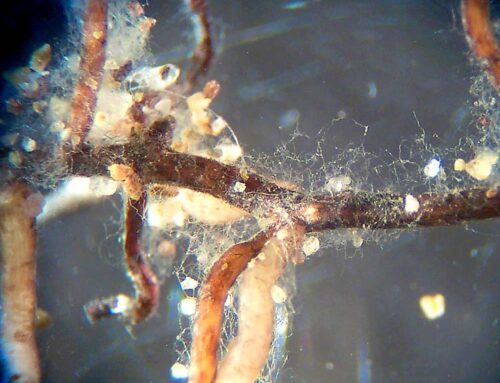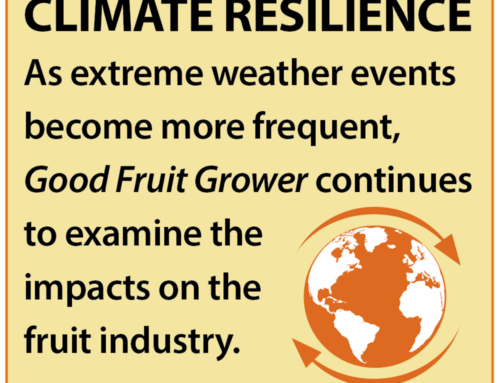
To keep you abreast of the latest information, Good Fruit Grower, in cooperation with industry professionals, is presenting an occasional column to answer some of the more frequently asked questions about implementation of the Food Safety Modernization Act.
When can we expect the first inspections by the Food and Drug Administration under the Food Safety Modernization Act?
Orchards (as well as packing houses that meet FDA’s farm definition) generating over $500,000 in annual sales were required to be in compliance with the FSMA Produce Safety Rule — with the exception of the water provisions — beginning Jan. 26, 2018. More time is given for operations under the $500,000 threshold in annual sales.
However, FDA has announced the agency will not begin conducting inspections to verify compliance until spring 2019.
This means that, while farms and packing houses are expected to be in compliance with the rule (and will be evaluated based on its requirements should FDA have a reason to visit your farm) following their current compliance date, officials will not be making a special trip to determine if your operation is FSMA-compliant until at least 2019.
It is also worth noting that the agency will not be able to visit every farm every year, so some farms may not see a FSMA inspector for several years.
For packing houses with more than 500 employees that do not meet the current farm definition and therefore fall under the Preventive Controls for Human Food Rule, compliance was also required beginning Jan. 26, 2018.
However, FDA announced that, due to the agency’s ongoing reconsideration of the farm definition, FDA would not be enforcing the Preventive Controls for Human Food rule on packers that currently fall within this category.
Instead, these packers will be expected to follow either current good manufacturing practices or the packing and holding provisions in the Produce Safety rule.
I am confused about the water sampling requirements under the FSMA Produce Safety Rule. I heard it got delayed?
FDA has issued a proposed rule to extend the compliance dates for the entire section of the Produce Safety Rule dealing with water until Jan. 26, 2022.
The intent of this delay is to give the agency time to reconsider all aspects of this portion of the rule. Therefore, we suggest that growers do not make changes to their current water sampling protocols based on the FSMA requirements as currently written, because these requirements are subject to change. The Northwest Horticultural Council is actively engaged with FDA in this reconsideration process.
What kind of training is required for FSMA compliance and where can I get trained?
The FSMA Produce Safety Rule requires that “at least one supervisor or responsible party for your farm must have successfully completed food safety training at least equivalent to that received under standardized curriculum recognized as adequate by the Food and Drug Administration.”
The Washington State Tree Fruit Association (WSTFA) is hosting Produce Safety Alliance Grower Training courses with lead trainers who are experts on food safety and co-management of natural resources, but who also have been working for several years in our industry and can share their experiences with the implementation of this rule in their farms/packing houses.
Our courses are highly subsidized through a Washington State Department of Agriculture Specialty Crop Block Grant, which allows us to charge only $25 to our participants, who will receive a grower manual, lunch and refreshments.
After attending the entire course, participants will be eligible to receive a certificate from the Association of Food and Drugs Official (AFDO) that verifies they have completed the training course.
This is a one-time only certification that doesn’t need to be renewed. This course is required for every farm that is not exempt from the regulation, regardless of their private GFSI certification (Global G.A.P., SQF, etc.).
Our next course will be April 25-26 in Wenatchee, Washington. WSTFA also hosted a train-the-trainer course in partnership with the Produce Safety Alliance, which certified 28 trainers in Washington who are now able to deliver such curriculum and train growers.
We are helping tree fruit industry trainers who want to train growers by covering the cost of manuals and certificates until August 2018. Contact Jacqui Gordon at jacqui@wstfa.org for more information.
What other food safety trainings or training materials should I be aware of?
WSTFA will host cleaning and sanitation workshops in Spanish in May 2018, as well as an environmental monitoring workshop for tree fruit packing houses in April 2018. Both will be hands-on workshops conducted in a warehouse setting and will be combined with short classroom presentations.
WSTFA also released two training videos, produced in partnership with tree fruit packing houses and the Washington Tree Fruit Research Commission.
The first video, which covers hand washing and was produced in both English and Spanish, uses statistics and data from the Centers for Disease Control and Prevention, Stop Foodborne Illness, and the Global Handwashing Partnership, to explain to employees both the why and how of effective hand washing.
The second video explains the difference between cross contamination and cross contact, with an emphasis on proper glove use and allergen contamination.
Both videos are available to Washington’s tree fruit industry at no cost. A third video, on good agricultural practices and hand washing in the field, is under development and will be released soon. Contact Jacqui Gordon at jacqui@wstfa.org to request a copy of the videos, or to volunteer your farm/packing house for video production.
What research has been or is currently being conducted to help provide me with tree fruit specific scientific support when preparing for FSMA compliance?
The Washington Tree Fruit Research Commission (WTFRC) has been utilizing an array of options to help fund industry-relevant research projects.
First, WTFRC has provided funding for several projects through the apple horticulture and postharvest committee. Based on completed projects, guidance can be found on a number of topics, including: packing line set-up to optimize bacterial reduction on apples, cleaning of storage rooms to manage listeria, and evaporative cooling risks for microbial contamination.
Currently funded ongoing research is investigating the effect of continuous low ozone in storage on reduction of listeria, potential of impingement drying to reduce microbial loads on apples, assessment of effectiveness of brush bed cleaning, and the development of a model food safety plan for packing houses that would comply with the requirements of the Preventive Controls for Human Food rule.
Final reports can be downloaded from the searchable database (www.treefruitresearch.com) and updates on currently funded projects are provided once a year at research reviews.
Further, the WTFRC has partnered with the Center for Produce Safety (CPS) for the past seven years to help initiate and fund research that is immediately actionable for the tree fruit industry.
Every year, tree fruit-specific priorities for food safety research are developed by our industry and included into the annual request for proposals. A complete list of projects funded to date can be found under: www.centerforproducesafety.org/grant_opportunities_awards.php
Research related to tree fruit has included: the use of UV-C to disinfect apricots, assessment of wooden and plastic bins to develop best practices for cleaning, risk assessment for use of overhead evaporative cooling water, alternative irrigation water quality indicators, and control of listeria through optimization of spray manifold intervention strategies for packing lines. •
– by Ines Hanrahan, Jacqui Gordon, Kate Woods
Please contact Jacqui Gordon (jacqui@wstfa.org; 509-452-8555) with the Washington State Tree Fruit Association for questions on food safety training opportunities; Kate Woods (woods@nwhort.org) with the Northwest Horticultural Council for questions on the FSMA law and its requirements; and Ines Hanrahan, Ph.D., (hanrahan@treefruitresearch.com) of the Washington Tree Fruit Research Commission for information on research related to FSMA and food safety.






Leave A Comment